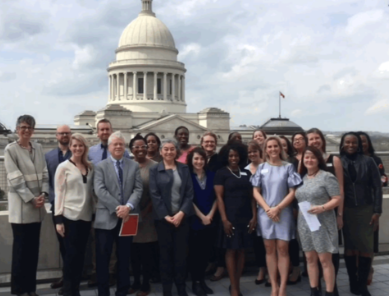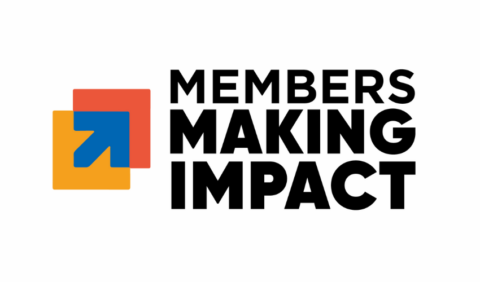
Because I said so. It’s a phrase that made me grimace when I heard it from my parents, but have found myself saying with some frequency as I raise two small children.
Because I said so, it turns out is an efficient way of saying, “the conclusion is obvious, but the reason is hard to explain.”
So why is it important that organizations be a part of the Asset Funders Network? Because I said so.
Why do I say so?
I work for the Winthrop Rockefeller Foundation, a statewide foundation with the vision of a thriving and prosperous Arkansas that benefits all Arkansans. The Foundation has invested in asset development strategies for nearly a decade to pursue this vision. We built a network of Volunteer Income Tax Assistance sites in the state of Arkansas that have exponentially increased the number of Arkansans avoiding tax preparation fees and claiming the Earned Income Tax Credit (EITC). We supported the creation of youth Individual Development Accounts and Child Savings Accounts (CSAs) in Arkansas. We advocated at the capitol for a state EITC.
Over the last ten years, we learned what it means to be an asset funder. We sought out models, strong partners, and effective policies. As we pursued these strategies, two things became clear:
- Effective models exist, but not all of those models are in Arkansas.
- Partners exist, but not all of those partners are being engaged in asset development strategies.
That’s where Asset Funders Network (AFN) comes in.
We are more powerful together.
In Arkansas, the AFN story began when the Winthrop Rockefeller Foundation and the Entergy Foundation came together to ask the questions:
- Why does Arkansas lack some proven models that are working across the region and the country?
- Why are there not more banks, corporations, and foundations supporting asset development strategies in Arkansas?
We could have answered those questions with, because that’s the way it it is (philanthropy’s version of, because I said so). We didn’t rest with that incomplete answer. Instead, we convened some of the smartest people we knew to help us answer our questions. Together with Southern Bancorp Community Partners, the Federal Reserve of St. Louis, the Carl B. & Florence E. King Foundation, among others, we imagined what it would mean to create a collective vision for asset development in Arkansas, bring together a broad cross-section of partners to achieve that vision, and begin to work on models and policies that could help Arkansas reach that vision.
The national AFN provided our fledgling group with data, inspiration, and structure to get started, and it has been a strong partner as we’ve started to work together to achieve our vision of economic well-being for low- and moderate-income individuals and families in Arkansas.
Barely two years into the existence of Arkansas AFN, we have:
- Convened a diverse set of partners and sparked action to provide financial services to underbanked residents, learned how to address the health-wealth connection, and brought attention to policies that serve low-wealth individuals
- Brought the BankOn model to Arkansas to reduce the number of unbanked families in the state
- Advocated on behalf of Child Savings Accounts and a state EITC
So why is AFN important?
Because that’s the way it is is not in AFN’s vocabulary or values:
- AFN welcomes the broadest definition of “philanthropy” into its membership so that private, public, corporate, and community foundations as well as public-sector funders and financial institutions are part of the solutions.
- AFN encourages learning, but doesn’t stop there. AFN is about action, turning ideas into impact in locations from coast to coast, and places in between like Arkansas.
So don’t be part of AFN because I said so. Be part of AFN because you must do so if you are a funder who cares about empowering individuals and families to become financially secure.


